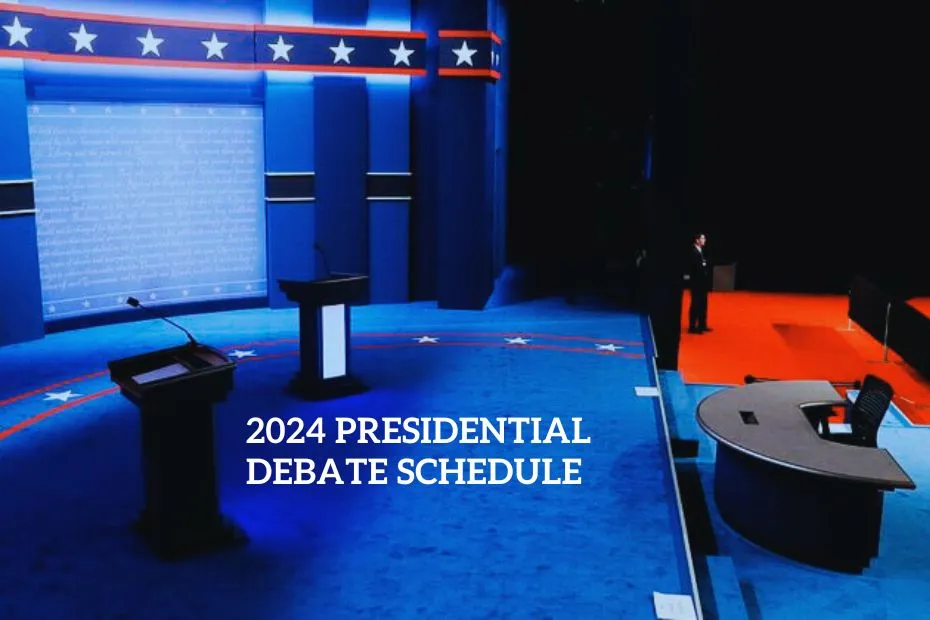Impact of Debates on the Election Cycle: Presidential Debate Dates

Presidential debates are a cornerstone of the American election cycle, offering a platform for candidates to engage directly with voters and present their policy positions. These events hold significant sway over public opinion and can dramatically influence the course of a campaign.
Impact on Public Opinion and Voter Preferences
Presidential debates play a pivotal role in shaping public opinion and influencing voter preferences. The highly visible nature of these events provides voters with a direct and unfiltered view of the candidates, allowing them to assess their demeanor, communication skills, and policy stances. Studies have consistently shown that debates can significantly impact voters’ perceptions of candidates, particularly among undecided voters.
For instance, the 1960 debate between John F. Kennedy and Richard Nixon, which was the first televised presidential debate, is widely credited with swaying public opinion in favor of Kennedy. Kennedy’s youthful appearance and charisma on television contrasted sharply with Nixon’s tired and pale appearance, leading many viewers to believe Kennedy had won the debate. This shift in public perception is believed to have contributed to Kennedy’s narrow victory in the election.
“The debates can provide voters with a deeper understanding of the candidates’ positions on key issues and their ability to articulate their vision for the country.”
Potential to Alter the Course of a Campaign, Presidential debate dates
Debates can also dramatically alter the course of an election campaign. A strong performance in a debate can generate positive media coverage, boost a candidate’s fundraising efforts, and mobilize their supporters. Conversely, a poor performance can damage a candidate’s reputation, erode public trust, and even lead to a decline in support.
The 2016 presidential election provides a compelling example of how debates can influence the course of a campaign. The first debate between Hillary Clinton and Donald Trump was widely seen as a turning point in the race. Trump’s aggressive and unconventional approach, which included personal attacks on Clinton, resonated with many voters, while Clinton’s more polished and policy-focused style was perceived as less engaging. This shift in the narrative, fueled by the debate, contributed to Trump’s eventual victory.
Key Arguments and Strategies in Past Debates
Debates often serve as a platform for candidates to showcase their key arguments and strategies. These arguments can range from policy proposals to personal attacks, and the strategies employed can include direct confrontation, evasive tactics, and appeals to emotion.
| Candidate | Key Arguments | Strategies |
|---|---|---|
| Ronald Reagan (1980) | Economic recovery, national security, and a strong military | Emphasized optimism and confidence, used humor to disarm opponents |
| Bill Clinton (1992) | Economic growth, healthcare reform, and education | Emphasized empathy and connection with voters, focused on personal stories |
| Barack Obama (2008) | Hope and change, ending the Iraq War, and healthcare reform | Presented a vision of unity and progress, used his eloquence to inspire voters |
The arguments and strategies employed by candidates in debates are often shaped by the political climate, the candidates’ strengths and weaknesses, and the specific issues at stake in the election.
Presidential debate dates – So, you’re probably wondering when those presidential debates are happening, right? I’m not sure about you, but I’m already getting my popcorn ready for those political fireworks! Maybe you can set up a viewing party with some comfy seating, like a kids adirondack chair and table for the little ones, so everyone can get in on the action.
Of course, you’ll need to check the official schedule to make sure you don’t miss a single debate!
It’s crazy to think about how close the presidential debate dates are! I’m really looking forward to seeing how it all plays out, especially since David Muir, the ABC News anchor , will be moderating one of the debates. I’m sure he’ll ask some tough questions and keep things interesting.
